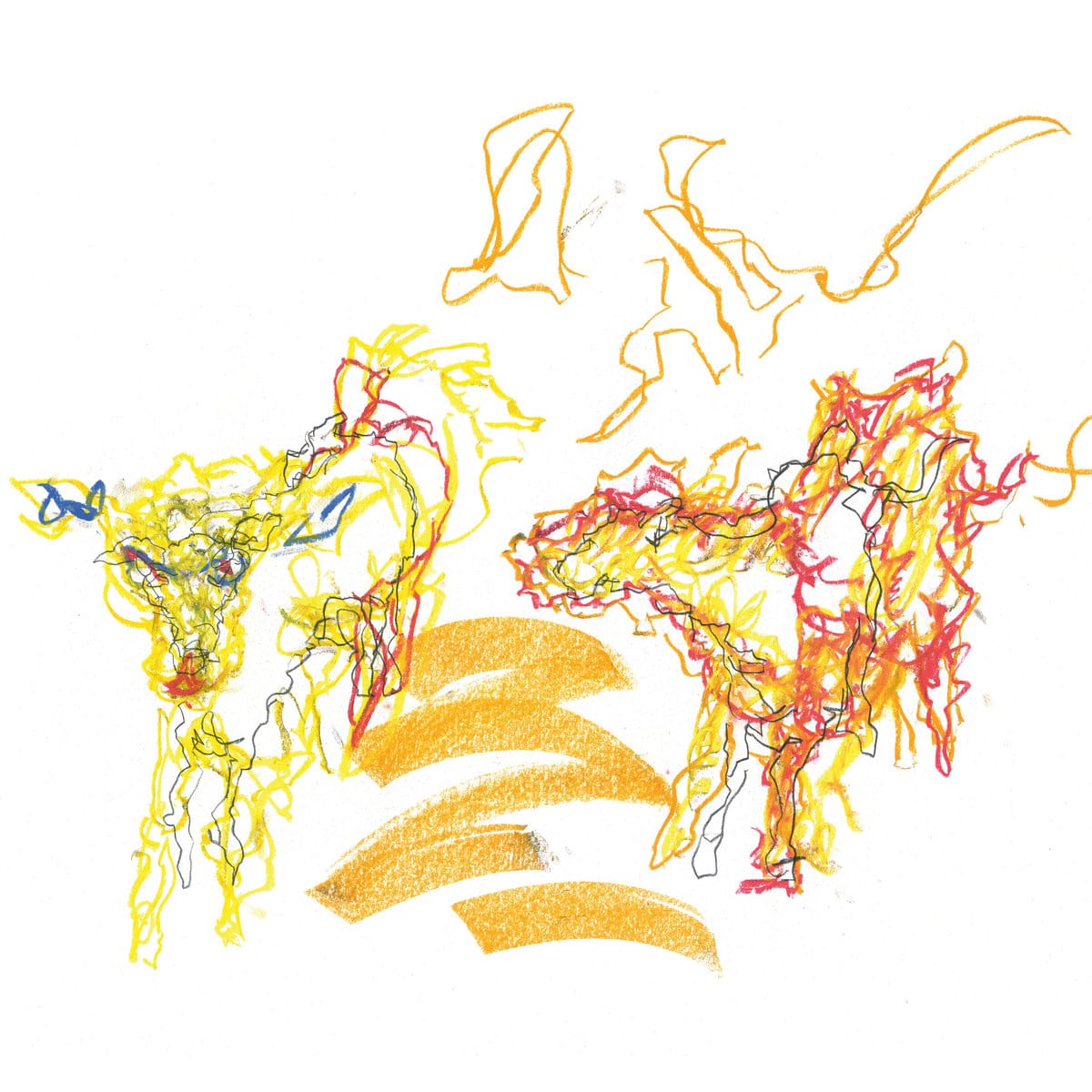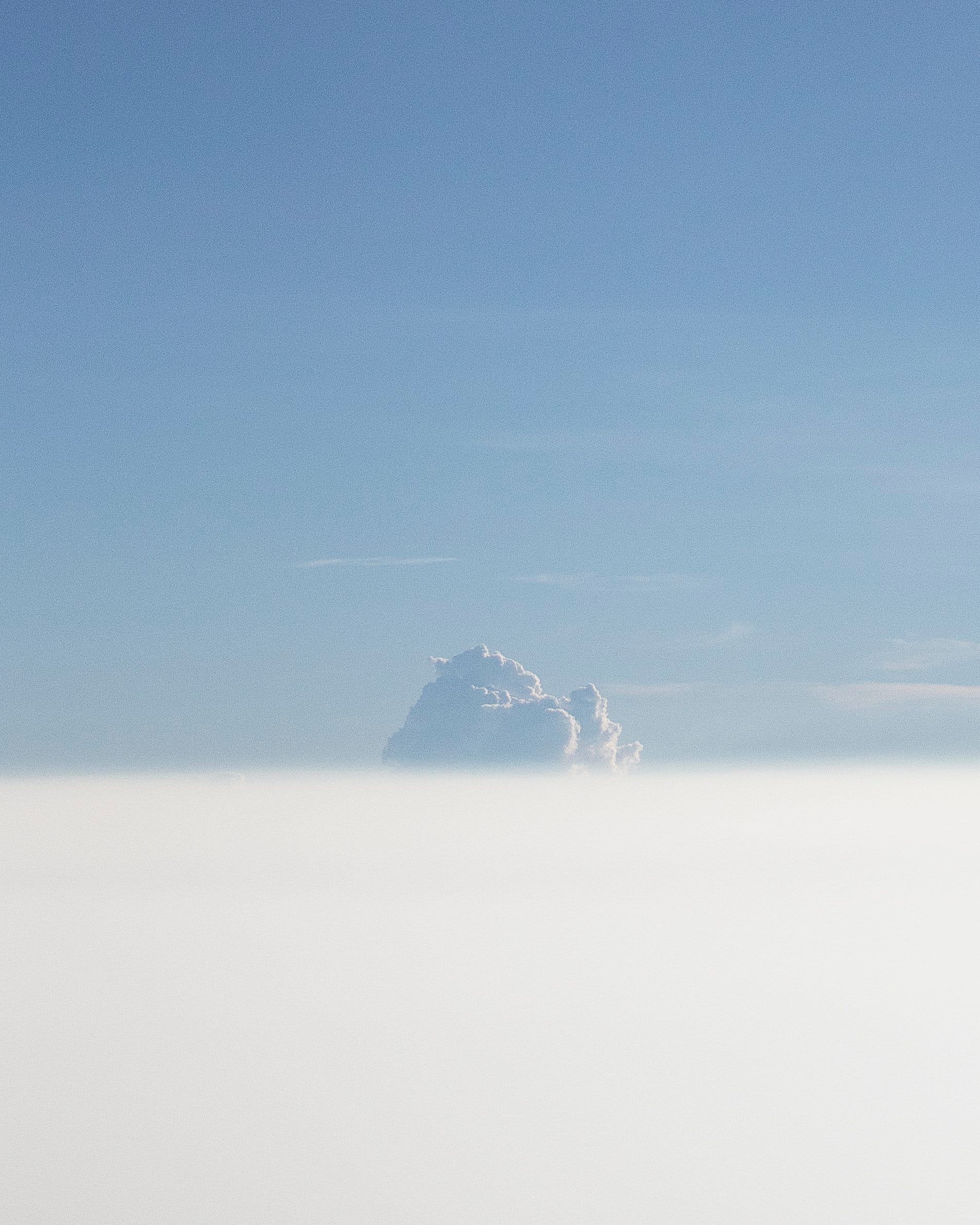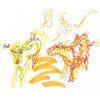Look Back: Superpitcher — "Hollywood"
Mentioned: The Postal Service, 12-LP albums, Pachanga Boys, Burning Man, $1500 records, Brian de Palma's "Body Double," Philip Glass, Sufjan Stevens, philosophical inquiry, Ship of Theseus.

Imagine Jeopardy! if Alex Trebek (may he rest easy) had long hair and were a habitual user of psychedelic mushrooms:
Q: What is Hollywood by Superpitcher?
I first discovered Superpitcher, aka German musician Aksel Schaufler, through Dntel's 2002 EP (This Is) The Dream of Evan and Chan, a proto-Millennial ur-text record that led to the creation of The Postal Service. Superpitcher's contribution, easily the best remix on the EP, rearranged the choppy original into a dreamy dancefloor lullaby. Though that remix would remain a favorite of mine for decades after, I left the rest of Superpitcher's discography basically untouched.
22 years old and as fresh as ever.
Fifteen years or so later, my friend Jack sent me a Superpitcher record—actually a series of records, twelve of them—called The Golden Ravedays. "I think you'd dig these," he said. Each installment featured two tracks, each about fifteen minutes long—twenty-four tracks in total for a six-hour-long album. The sheer volume overwhelmed me and I barely listened, but the audacity of the project intrigued me. Then, two years ago, Jack sent me another Superpitcher record called Hollywood. "You should listen this time," he said, and I did. I fell in love immediately.
Backing up for a moment: Around 2009, Superpitcher and Mexican producer Rebolledo formed a duo project called Pachanga Boys, and in 2011, they released an EP, Girlcatcher, on their imprint Hippie Dance. The A-side featured a suffocatingly weird percussive slammer with demonic vocals called "Black Naga," while on the B-side was a single track, fifteen minutes and fifteen seconds long, called "Time."
7.6M views at 15 minutes long is 114M minutes or about 2,740 years of listening.
Depending on your point of view, "Time" is either a heartrending opus of staggering melancholy or a super-corny over-long saccharine cheese-fest—or maybe all of the above—and it quickly became quasi-legendary amongst the cohort of people, mainly software developers with vested RSUs, who refer to going to Burning Man as "going home": Robot Heart, Mayan Warrior, playa tech, that sort of thing. (The record sells for over $1500 on Discogs, by the way.) I'm aggressively disinterested in everything to do with Burning Man, but I absolutely love Pachanga Boys' "Time." I loved it when I first heard it and I love it today. I would love to be dancing to it with all of my friends as the sun is coming up, just not on a dusty barren desert.
Back to Hollywood. As it happens, the album derives from a snippet, stretched into infinity, of the original soundtrack to Body Double by Pino Dinaggio, an Italian producer and composer with over two hundred film soundtracks to his name. Body Double, directed by Brian de Palma, is a sexy, sleazy thriller from 1984—trashy Hitchcock homage, essentially. "Telescope," the source material for Hollywood, sounds like the essence of the 1980s itself: lush, sexy, lurid, tender, and credulous—big hair, wide eyes, short skirts. Not even four minutes long, the track practically begs for a proper DJ edit.
The sound of the male gaze.
But Hollywood isn't an edit, and Superpitcher didn't sample Dinaggio at all. Instead, he painstakingly (and pitch-perfectly) rebuilt the original track, stretching it out and re-arranging it to accommodate a 10X runtime. The vocal refrain doesn't appear until about four minutes in; phased-out hi-hats appear around minute nine; the kick drum finally drops around minute twelve. For the next half-hour, the arrangement is gently tweaked until the final fade-out, at which point we ride off into the proverbial pinkish-orange sunset. Two chapters, one album, forty-four minutes. Perfection.
Each time I listened to the album, I'd play it at least twice over, sometimes more. I've long been fascinated by the artifice of musical repetition, and the longer I spent listening to Hollywood, the deeper into it I fell. I began to think about the album not as club music or '80s homage, but as a new kind of minimalism, something akin to Philip Glass or Terry Riley. The more I listened, the more I felt like something hidden was just about to reveal itself—that the album's endlessly repeating phrases were actually part of some greater pattern I couldn't quite discern.

Finally, it hit me—or something hit me, but not what I expected. Eleven minutes and thirty-eight seconds in, the beat drops, accompanied by a ghastly vocal wisp so subtle I didn't even notice it until over a year after I first listened to the record. It's the lush background vocal from Pachanga Boys' "Time." Then I noticed a looping, clattering hand drum phrase, identical, or nearly so, to the hand drums from "Time." These references persist throughout the entire record, and they blend in so well with Schaufler's interpretation of Dinaggio's sound design that it's hard for me to imagine one without the other.

In other words, Hollywood isn't just homage to the glistening Italo majesty of de Palma's Body Double soundtrack, but to "Time" by Pachanga Boys, Superpitcher's own co-production from a decade prior. Was "Time" itself just riffing on the Body Double soundtrack all along? Does this enormously successful Burning Man anthem, a $1500 record, really owe its entire existence to an 80-year old Italian guy called "Pino"?
The answer is probably not: the plaintive organ riff that gives "Time" its crying-on-the-dancefloor energy is cribbed directly from Sufjan Stevens' "Sleeping Bear, Sault Saint Marie," which, frankly, is even funnier than a hypothetical Body Double connection. (Thanks, whosampled.com.)
The Sufjan Stevens to Burning Man pipeline.
I loved Hollywood at first listen, but I never expected that it would pose existential questions and send me down a dialectical path. Is Hollywood an original work, or an edit, or a mashup? Does the fact that it's recreated note-by-note, Ship of Theseus-style, change anything? Why sample "Time," and why do those samples mesh so well—is it just coincidence? Is there some deeper backstory, or are the samples simply designed to distinguish Schaufler's composition from Dinaggio's? And if an artist, like Superpitcher, reuses or recreates their own work, like "Time"—wildly popular amongst certain audiences but derided by others—in an entirely different context, is that merely an act of self-reference, or is it, in some sense, "context-washing," rehabilitation of a kind?
I don't have answers to those questions, and ultimately, they don't really matter. I'm overthinking things, as is my style. Hollywood is a great record, and so is Pachanga Boys' "Time." Body Double is a great movie, too. What a strange and wondrous thing that this single-track album by a German artist ties them all together. Music, like life, is beautiful. Time to listen once again.


